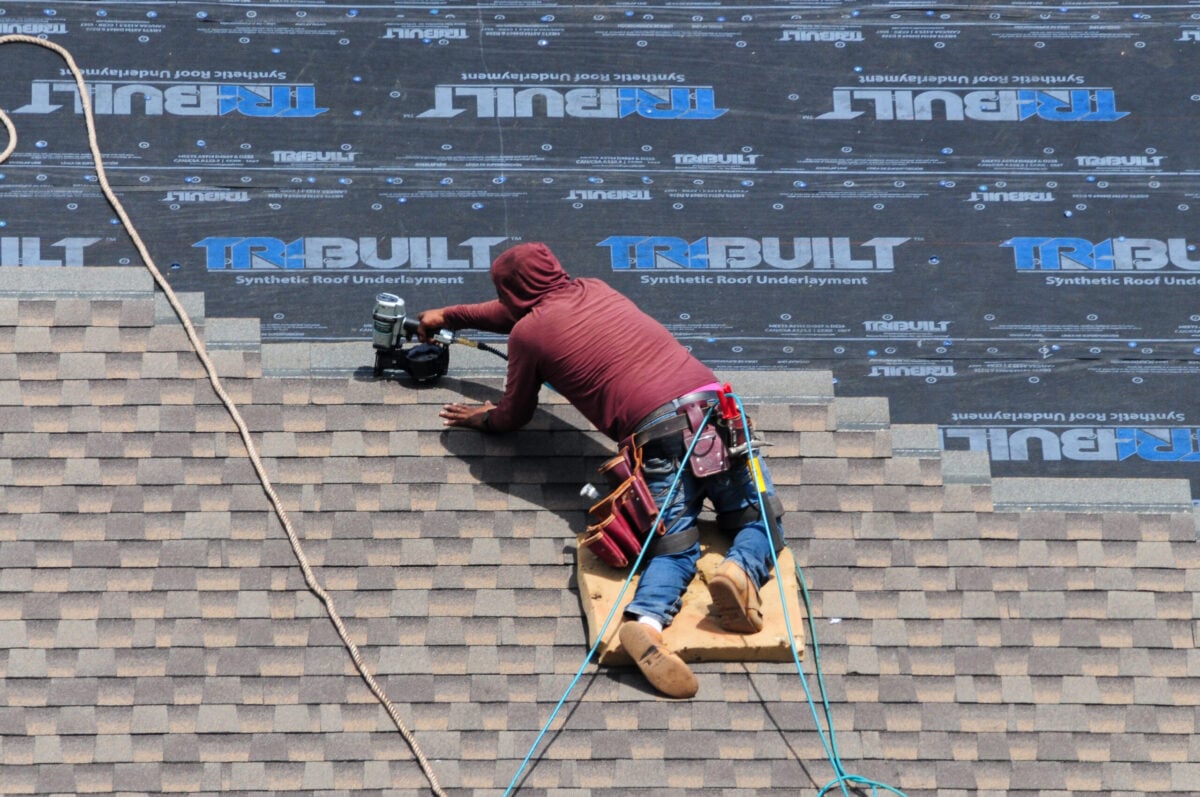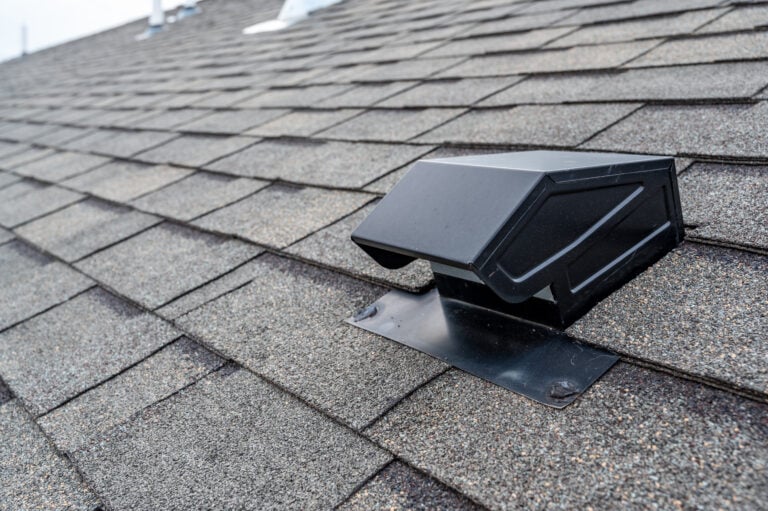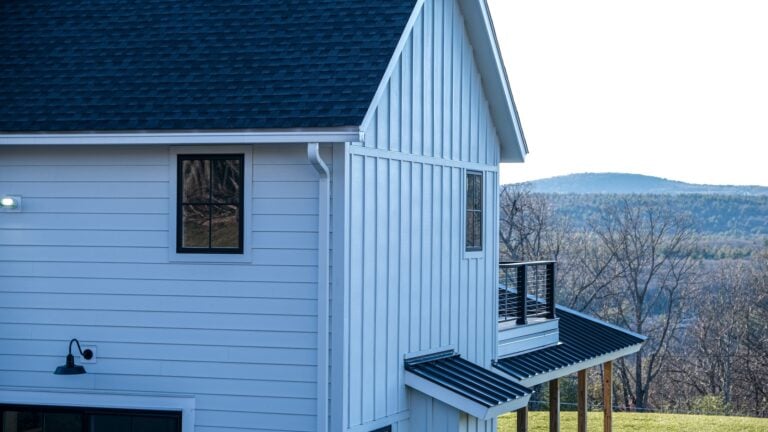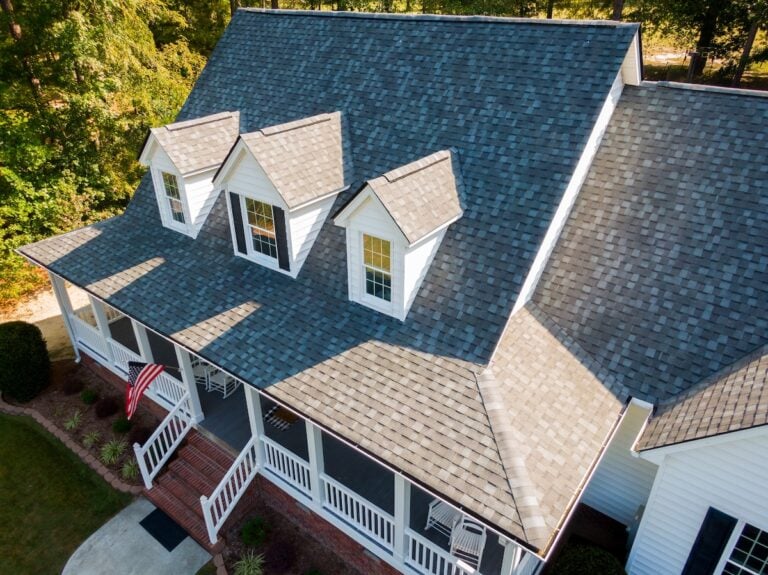Choosing the right roofer for your home is an important decision. Your roof protects your family and belongings, so entrusting it to a skilled and reliable professional is essential. But how do you ensure you’re hiring the best roofer for the job? Asking the right questions is a great place to start.
This blog will guide you through the top questions to ask a roofer before hiring them, ensuring your project is in capable hands. Additionally, we’ll cover other essential roofing topics like understanding warranties, certifications, and what to expect during a roofing installation.
Here’s what you’ll learn:
- Why certifications and licenses matter
- Key questions to ask a roofer
- What the roofing process looks like
🤔 Why Certifications and Licenses Matter
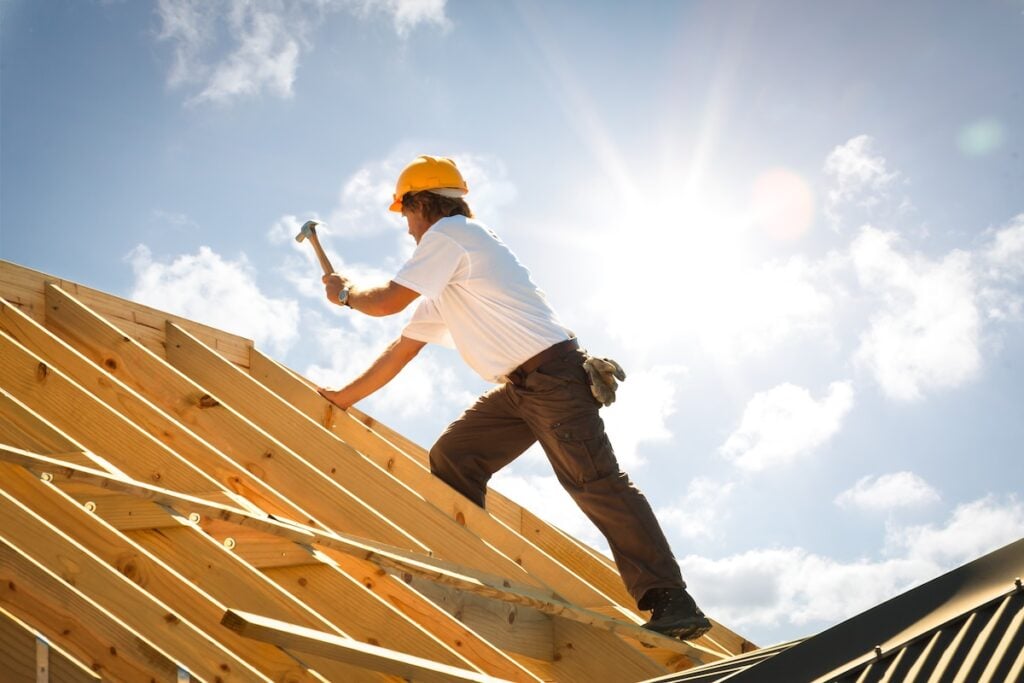
Hiring a roofer with the right certifications and licenses is essential to ensure you’re working with a skilled and qualified professional. Certified roofers bring more than just expertise—they often have access to premium materials, better warranties, and the knowledge to deliver work that meets or exceeds industry standards.
At Best Exteriors, we take pride in providing top-notch roofing services by meeting all certification and licensing requirements. Here’s what sets us apart:
- Certified by top manufacturers: We hold certifications from leading brands like Owens Corning, GAF, and CertainTeed, ensuring we use only the best materials for your roof.
- Access to enhanced warranties: As certified installers, we can offer extended warranties directly from manufacturers, giving you peace of mind for years to come.
- Compliance with local regulations: We adhere to all local licensing requirements, ensuring your project is in full compliance with safety and legal standards.
- High-quality workmanship: Our certifications guarantee that your roofing project is completed using the highest industry standards, delivering durability and reliability.
👉 6 Key Questions To Ask A Roofer Before Hiring
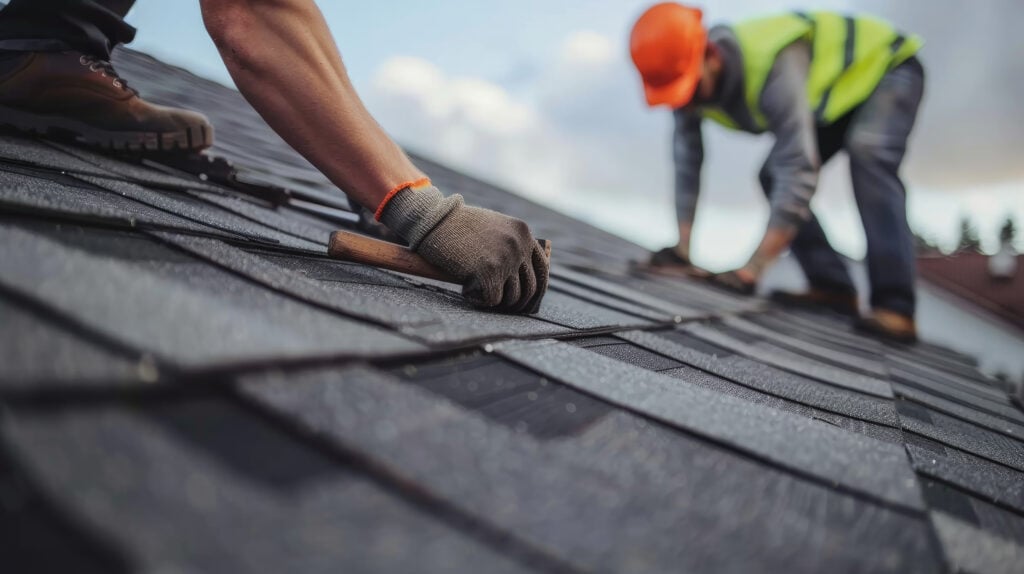
Before committing to a contractor, make sure you ask these essential questions to ensure you’re making the right choice.
1. Are you licensed and insured?
When hiring a roofing contractor, it’s crucial to confirm that they have the appropriate licensing required by your state or local government. This ensures they meet the necessary standards and comply with all regulations. Additionally, ask if they carry both liability insurance and worker’s compensation insurance. Liability insurance protects you in case of property damage caused during the project, while worker’s compensation insurance covers any injuries sustained by employees on your property. Without these, you could be held financially responsible for accidents or damages. Always ask to see proof of insurance and verify their license to avoid legal or financial complications down the road.
2. Do you have experience with this type of roofing?
Not all roofing contractors are skilled in working with every type of roofing material. Whether your home features asphalt shingles, metal roofing, tiles, or another material, it’s important to ask if the contractor has specific experience installing or repairing that type of roof. Each material has unique installation techniques, durability factors, and maintenance requirements, so expertise is key to ensuring a proper and lasting job. Ask to see examples of similar projects they’ve completed or photos of their past work. This will give you confidence that they understand how to handle your specific roofing needs.
3. Can you provide references or reviews?
Reputation matters when choosing a roofer. A reputable contractor should have no problem providing you with references from previous clients or directing you to online reviews of their work. Reach out to these references or read the reviews to learn more about the contractor’s reliability, professionalism, and quality of work. Pay attention to feedback about how well they communicate, their adherence to timelines, and the overall satisfaction of their clients. This step is crucial in ensuring you hire someone who consistently delivers good results and treats their customers well.
4. What warranties do you offer?
Before committing to a contractor, make sure you understand the warranties they provide. There are typically two types of warranties to consider: the manufacturer’s warranty on the roofing materials and the roofer’s warranty on workmanship. A good manufacturer’s warranty ensures protection against defects in the materials, while a workmanship warranty guarantees the contractor will address any installation issues. Ask how long these warranties last and what they cover. A trustworthy roofer should clearly explain the warranty terms and stand behind the quality of their work.
5. Will you provide a written estimate?
A written estimate is an essential part of any roofing project. It outlines the cost, timeline, and scope of the work, ensuring there are no surprises along the way. A detailed estimate should include a breakdown of labor, materials, removal of old roofing, and any additional costs. Be wary of contractors who are unwilling to provide a written estimate, as this could lead to miscommunication or unexpected charges later. A transparent contractor will happily provide one and answer any questions you have about the details.
6. How do you handle unexpected problems?
Roofing projects can sometimes uncover unforeseen issues, such as hidden water damage, structural concerns, or pest infestations. It’s important to ask how the contractor plans to handle these types of problems if they arise. A professional roofer should have a clear process for addressing unexpected situations and should communicate with you promptly about any additional work or costs involved. Transparency and clear communication are key, so ensure your contractor explains how they will keep you informed and gain your approval before proceeding with extra work.
✅ Steps to Expect During the Roofing Process
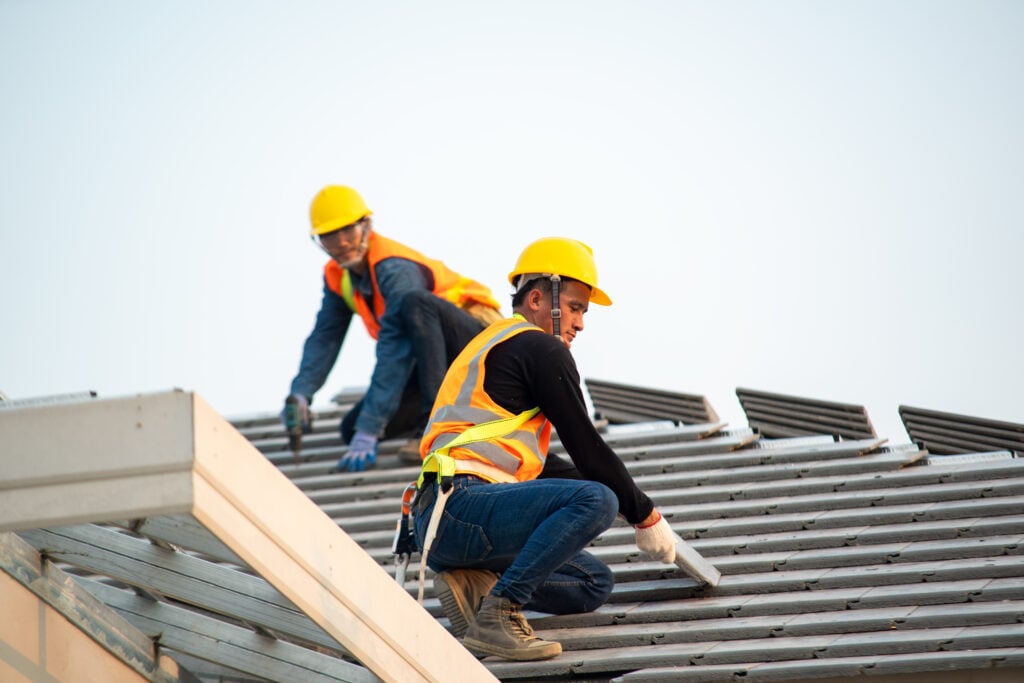
Understanding the typical steps involved in a roofing project can help you feel confident and prepared.
1. Inspection
The first step in any roofing project is a comprehensive inspection of your existing roof. The roofer will assess the overall condition, checking for any visible damage like cracks, leaks, missing shingles, or structural vulnerabilities that could compromise the new installation. This step is crucial for identifying potential challenges and ensuring an accurate estimate. A thorough inspection also allows the roofer to recommend the best materials and solutions tailored to your specific needs.
2. Proposal
After the inspection, you’ll receive a detailed project proposal outlining everything you need to know about the roofing project. This includes a breakdown of the estimated costs, the materials to be used, the timeline for completion, and any warranties offered. The proposal ensures transparency and gives you the chance to ask questions or make adjustments before moving forward. It’s important to review this document carefully to avoid any surprises later.
3. Preparation
Before any work begins, the roofer will take steps to prepare your property for the installation process. This involves protecting areas like landscaping, windows, and any outdoor furniture to ensure they aren’t damaged during the project. Depending on the complexity of the job, preparation may also involve securing permits and coordinating any necessary inspections with local authorities. A well-prepared site minimizes potential delays and ensures a smoother installation process.
4. Installation
This is the core stage of the project. The roofers will start by removing your old roof if necessary, carefully disposing of the debris to maintain a clean and safe work environment. Once the old roofing is cleared, they’ll install the new roofing system according to the agreed plan, ensuring proper ventilation, insulation, and weatherproofing. A reputable contractor will keep you informed throughout the installation, addressing any issues that arise and maintaining high-quality standards. Attention to detail during this phase is key to ensuring your new roof is durable and built to last.
5. Cleanup and Final Inspection
After the installation is complete, the roofer will thoroughly clean up the worksite, removing any leftover debris, nails, or discarded materials. This step ensures your property looks as good as it did before the project began. A final inspection will then be conducted to confirm that every detail of the roof meets quality standards and aligns with the agreed-upon specifications. The roofer will walk you through the completed work, answer any questions, and ensure you’re fully satisfied with the results. This final step provides peace of mind that your new roof is ready to protect your home for years to come.
🏠 Trust Best Exteriors For Your Roofing Needs
At the end of the day, hiring the right roofer comes down to asking the right questions and finding a team you can trust. At Best Exteriors, we’re proud to be the go-to choice for homeowners in Columbus, Ohio, delivering expert craftsmanship, clear communication, and industry-leading warranties with every project.
With certifications from top manufacturers like Owens Corning, GAF, and CertainTeed, you can count on us to get the job done right the first time. Ready to start your roofing project with a team that puts your needs first? Contact Best Exteriors today for a free estimate and let us bring your roofing vision to life!!
